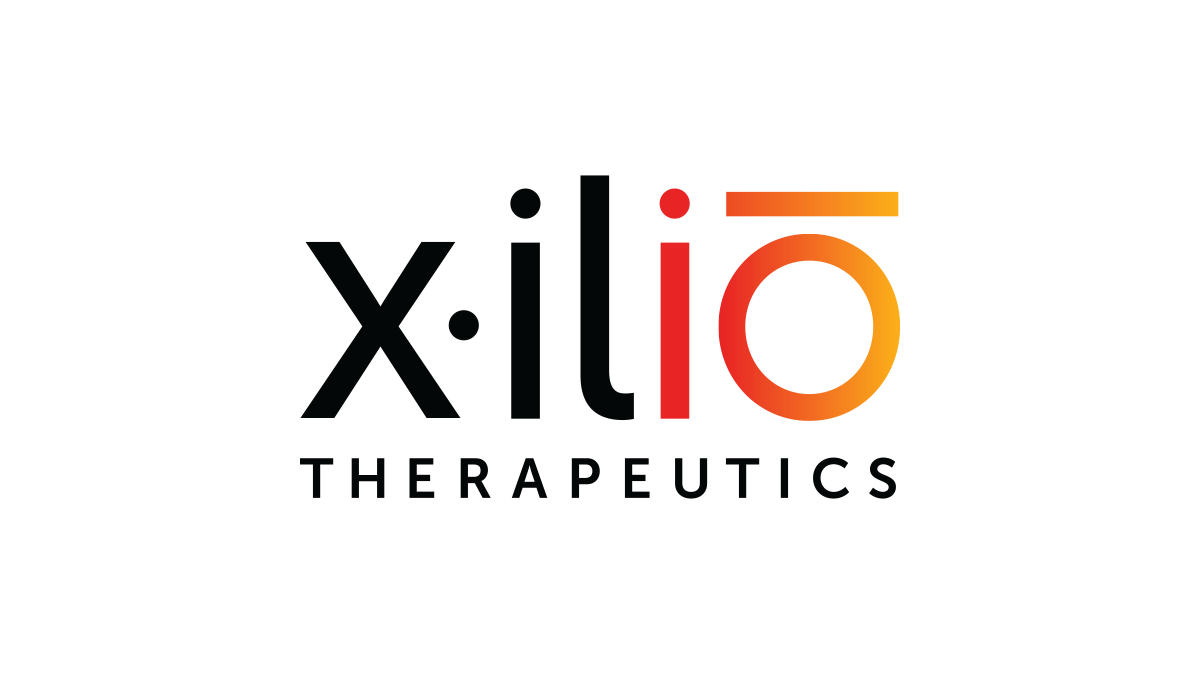Xilio Therapeutics Announces Initial Clinical Trial Data from Phase 1C Dose Escalation for Vilastobart (XTX101), a Tumor-Activated Anti-CTLA-4, in Combination with Atezolizumab in Patients with Advanced Solid Tumors
Xilio Therapeutics, Inc. (Nasdaq: XLO), a clinical-stage biotechnology company discovering and developing tumor-activated immuno-oncology therapies for people living with cancer, announced initial clinical data from its ongoing Phase 1C clinical trial evaluating vilastobart (XTX101), a tumor-activated, Fc-enhanced, high affinity binding anti-CTLA-4, in combination with atezolizumab (Tecentriq®) in patients with advanced solid tumors.
The data was presented in a late-breaker poster presentation (abstract #1455) on November 8, 2024, at the Society for Immunotherapy of Cancer (SITC) 39th Annual Meeting taking place in Houston, Texas.
“These Phase 1 combination data for vilastobart and atezolizumab provide promising initial clinical evidence of the potential for the combination in patients with traditionally immunotherapy-resistant tumors, or “cold” tumors, including MSS colorectal cancer.
In particular, we are encouraged by the potentially differentiated safety profile and two unconfirmed partial responses, including complete resolution of a metastatic liver lesion observed in a patient with MSS colorectal cancer.
The majority of metastatic MSS colorectal cancer patients have liver metastases, which have proven to be resistant to existing immuno-oncology treatments, including combination treatments, and represent a significant unmet need. We look forward to sharing initial Phase 2 data for the combination of vilastobart and atezolizumab in patients with metastatic MSS colorectal cancer with and without liver metastases later this year” – said René Russo, President and CEO of Xilio.
“With the increasing incidence of MSS colorectal cancer, particularly in younger adults, the lack of effective treatment options for these patients represents one of the most significant challenges in oncology today.
These initial combination data for vilastobart are encouraging as they show early evidence of meaningful anti-tumor activity in patients with traditionally immunotherapy-resistant tumors and highlight the potential for vilastobart to be a differentiated, next-generation anti-CTLA-4 in combination with PD-(L)1 inhibitors in MSS colorectal cancer and other tumors,” – said Diwakar Davar, Associate Professor of Medicine, Clinical Director of the Melanoma Program and Medical Oncologist/Hematologist at the UPMC Hillman Cancer Center and the lead author of the study.
Data from Phase 1C Dose Escalation for Vilastobart (XTX101), a Tumor-Activated Anti-CTLA-4, in Combination with Atezolizumab
As of a data cutoff date of October 7, 2024, 17 patients had been treated with the combination of vilastobart at doses ranging from 75 mg to 150 mg once every six weeks (Q6W) and atezolizumab at 1200 mg once every three weeks (Q3W). Across all patients treated:
Tumor types included MSS CRC (n=12) and microsatellite instability high (MSI-H) CRC, non-small cell lung cancer (NSCLC), esophageal cancer, ampullary carcinoma and cancer of the abdomen (n=1 each).
The median age was 69 years (ranging from 39 to 77 years), and patients were generally heavily pre-treated.
83% of patients previously received three or more prior lines of anti-cancer therapy.
As of the data cutoff date, seven patients were continuing on treatment with the combination of vilastobart and atezolizumab, and 10 patients had discontinued treatment.
Initial Safety Data
Safety data support the potential for vilastobart to be a differentiated next-generation anti-CTLA-4 in combination with PD-(L)1 inhibitors—combination was generally well-tolerated with patients experiencing minimal immune-related adverse events
Across all dose levels, no Grade 4 or Grade 5 treatment-related adverse events (AEs) were reported by investigators. In addition, no endocrine immune-related AEs (irAEs) and limited skin irAEs were reported by investigators. Only one patient (6%) experienced a dose reduction due to a treatment-related AE, and only one patient (6%) discontinued treatment of both vilastobart and atezolizumab due to a treatment-related AE.
Across all dose levels, investigators reported Grade 3 treatment-related AEs in only three patients: alanine aminotransferase (ALT) increase (12%); diarrhea, colitis and blood alkaline phosphatase (ALP) increase (6% each). Of these Grade 3 treatment-related AEs, two patients at the 150 mg dose level for vilastobart had dose-limiting toxicities: one patient with Grade 3 colitis and diarrhea and one patient with Grade 3 ALT increase and blood ALP increase.
Across all dose levels, the most common treatment-related AEs (≥10% incidence) of any grade reported by investigators were the following: infusion-related reactions (59%); aspartate aminotransferase (AST) increase, ALT increase and lipase increase (18% each); diarrhea, fatigue and blood ALP increase (12% each). Of the 10 patients with infusion-related reactions, four patients experienced reactions related to vilastobart, three patients experienced reactions related to atezolizumab and three patients experienced reactions related to the combination.
Initial Anti-Tumor Activity Data
Encouraging early evidence of anti-tumor activity, including partial responses (unconfirmed) in two patients with difficult-to-treat, immunologically “cold” tumors, including one patient with MSS CRC and a metastatic liver lesion
Patient with MSS CRC and a metastatic liver lesion: A patient with MSS CRC and a metastatic liver lesion achieved a partial response (pending confirmation) per Response Evaluation Criteria in Solid Tumors (RECIST) (33% reduction in the sum of diameters of target lesions), including full resolution of the liver lesion.
The patient previously progressed on five prior lines of therapy and was administered the combination of vilastobart at the 150 mg Q6W dose level and atezolizumab (1200 mg Q3W).
Patient with ampullary carcinoma: A patient with ampullary carcinoma achieved a partial response (unconfirmed) per RECIST (32% reduction in the sum of diameters of target lesions) accompanied by a substantial decrease in the serum tumor marker CA 19-9 (from 700.2 at baseline to 40.8 after 6 weeks of treatment). CA 19-9 associated antigen levels are often significantly elevated in patients with pancreatic cancer.
The patient previously progressed on two prior lines of therapy and was administered the combination of vilastobart at the 150 mg Q6W dose level and atezolizumab (1200 mg Q3W). The patient withdrew consent prior to undergoing a confirmatory scan.
Clinical Development Plans for Vilastobart
The initial Phase 1C data supported the selection of an initial recommended Phase 2 dose (RP2D) for vilastobart at 100 mg Q6W in combination with atezolizumab at 1200 mg Q3W. In addition, Xilio continues to enroll patients in Phase 1C dose escalation for the combination of vilastobart at the 150 mg Q6W dose level and atezolizumab at 1200 mg Q3W.
Xilio is currently enrolling patients in its ongoing Phase 2 clinical trial evaluating the combination of vilastobart and atezolizumab at the initial combination RP2D in patients with metastatic MSS CRC, including patients with and without liver metastases.
Xilio expects to report initial Phase 2 data for the combination in approximately 20 patients with metastatic MSS CRC in the fourth quarter of 2024 and additional Phase 2 data for the combination in a total of approximately 40 patients with metastatic MSS CRC in the first quarter of 2025.
About Vilastobart (XTX101) and the Phase 1/2 Combination Clinical Trial
Vilastobart is an investigational tumor-activated, Fc-enhanced, high affinity binding anti-CTLA-4 monoclonal antibody designed to block CTLA-4 and deplete regulatory T cells when activated in the tumor microenvironment (TME). In 2023, Xilio entered into a co-funded clinical trial collaboration with Roche to evaluate vilastobart in combination with atezolizumab (Tecentriq®) in a multi-center, open-label Phase 1/2 clinical trial.
Xilio is currently evaluating the safety of the combination in Phase 1C dose escalation in patients with advanced solid tumors and the safety and efficacy of the combination in Phase 2 in patients with metastatic microsatellite stable colorectal cancer with and without liver metastases. Please refer to NCT04896697 for additional details.
About Xilio Therapeutics
Xilio Therapeutics is a clinical-stage biotechnology company discovering and developing tumor-activated immuno-oncology (I-O) therapies with the goal of significantly improving outcomes for people living with cancer without the systemic side effects of current I-O treatments.
The company is using its proprietary platform to advance a pipeline of novel, tumor-activated clinical and preclinical I-O molecules that are designed to optimize the therapeutic index by localizing anti-tumor activity within the tumor microenvironment, including tumor-activated cytokines, antibodies, bispecifics and immune cell engagers.




